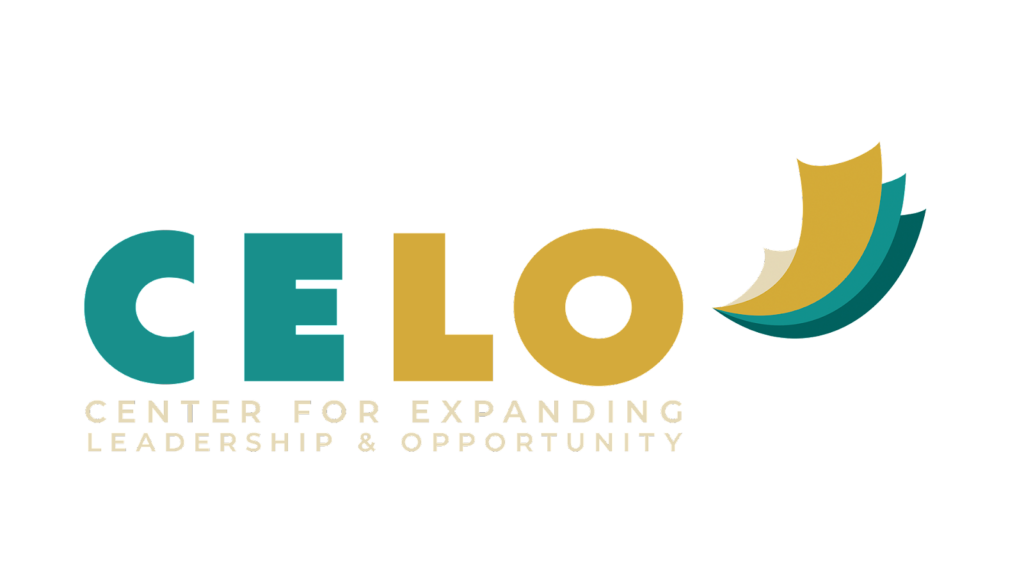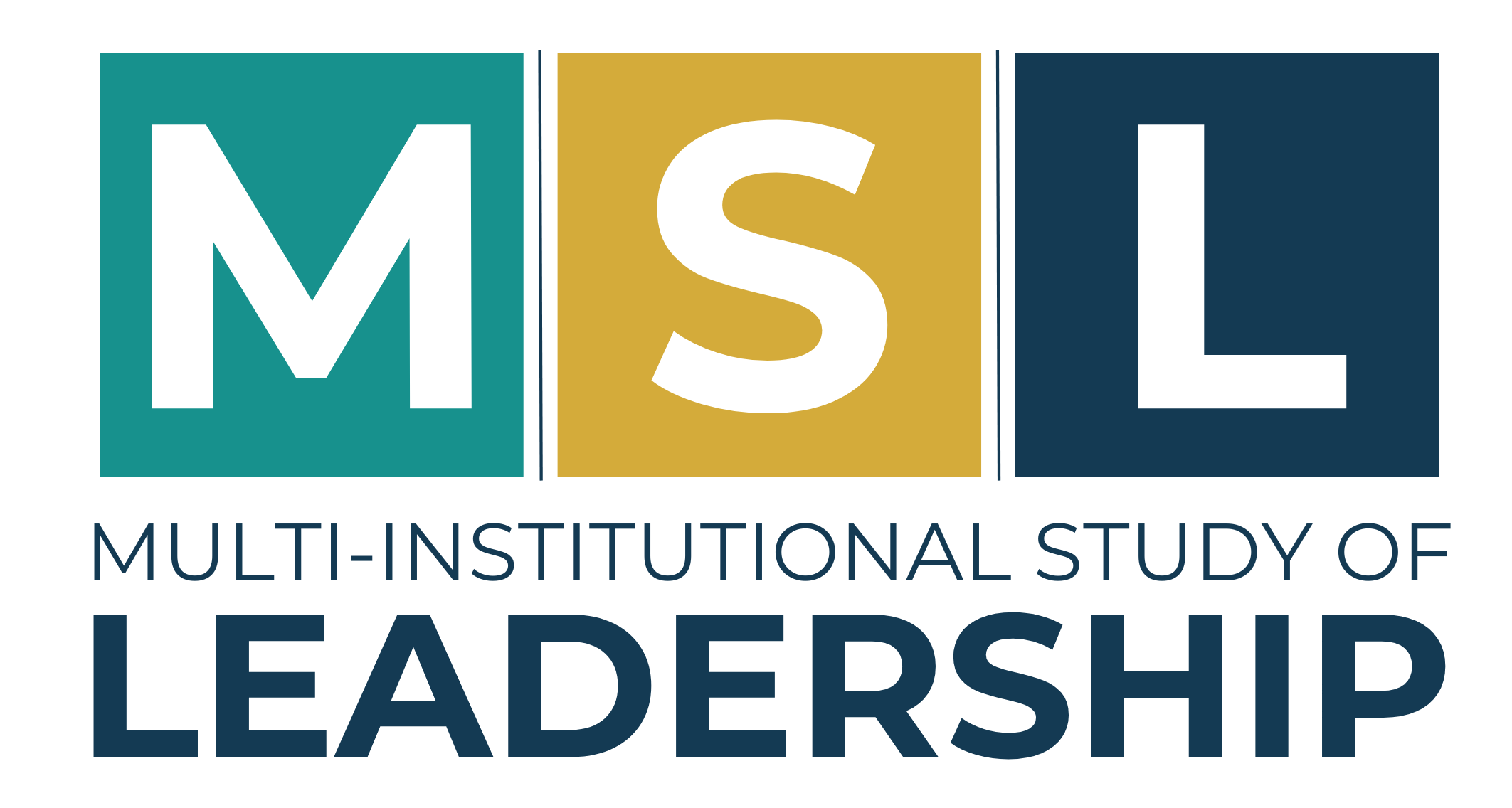
Conceptual Model
Research is only as good as its design.
Clear conceptual and theoretical grounding coupled with established, high psychometric rigor are at the core of MSL. We generate data and results that are accurate, able to be applied with confidence, and add to the collective knowledge base on human capacity-building (e.g., leadership development, civic engagement, workforce readiness). MSL started as a research study with a dual goal of accelerating organizational partners’ abilities to drive impact locally through their organizations. Today, hundreds of educational organizations around the globe rely on MSL’s conceptual model to drive their assessment, program design, and participant experiences.
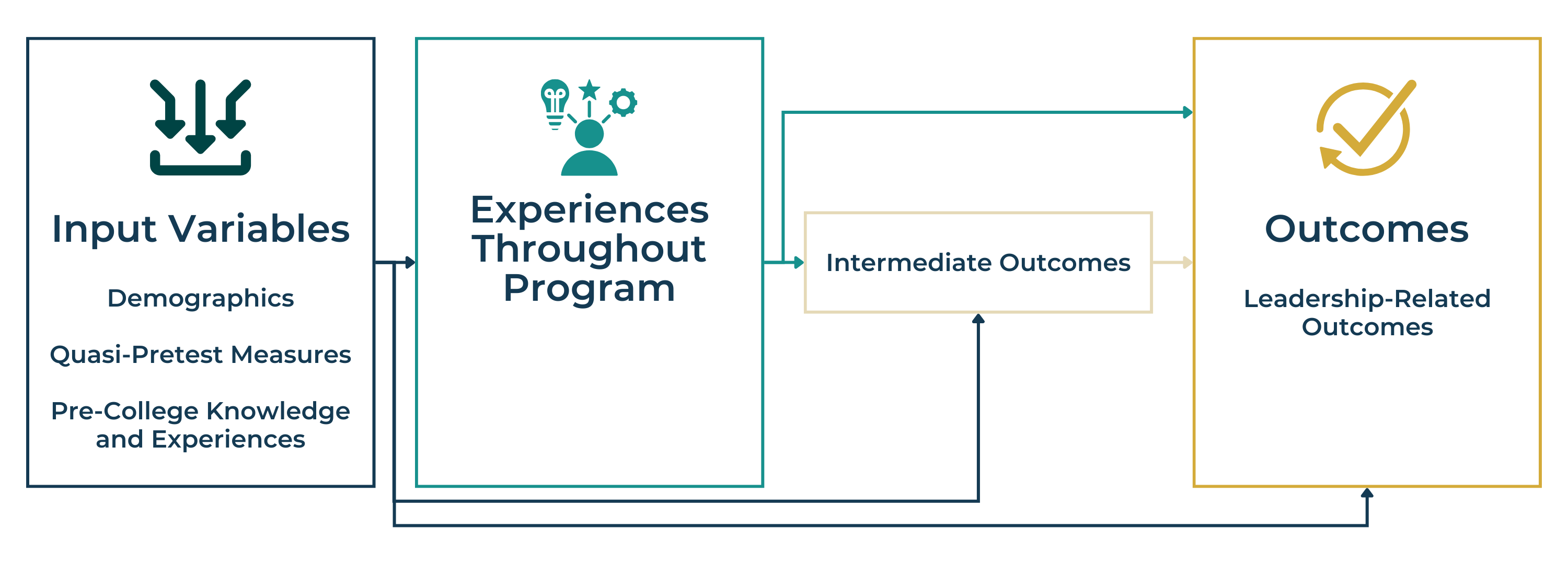
Built upon Astin’s (1993) “Input-Environment-Output” (I-E-O) College Impact Model
An adapted version of Astin’s (1993) Input-Environments-Output (I-E-O) Impact Model provides the conceptual framework for MSL. This includes collecting data about youth and students’ experiences prior to exposure to an enthronement like high school, college, or a nonprofit’s programmatic interventions. Concurrent learning experiences (e.g., involvement in sports, degree program, mentoring experiences, leadership training) are also collected so that they can be triangulated to identify the unique influences on learning outcomes.
The model is adapted in two key ways:
1. The environment is extended to include variables representing experiences outside the direct environment of interest (e.g., school, program, organization) to ensure the accuracy of impact findings.
2. The study collects data at a single point with pre-environmental data collected through retrospective questions. Participants are asked to think back to what they did and how they were prior to exposure to the environment. MSL can be conducted as a true, longitudinal study, however, the use of retrospective questions is supported by prior research indicating it reduces response-shift-bias and yields accurate indications of student gains (Howard, 1980; Rohs, 2002; Rohs & Langone, 1997).
Theoretical Framework
More than the social change model.
The original theoretical framework for the MSL was the Social Change Model of Leadership Development (SCM; HERI, 1996). The SCM measures socially responsible leadership capacity defined as “a purposeful, collaborative, values-based process that results in positive social change” (Komives, Wagner, & Associates, 2009, p. xii).
As a result of nearly two decades of data collection and analyses, the MSL theoretical framework evolved to capture a broader range of capacities or “soft skills” associated with human development. The current theoretical framework draws from a much more robust set of interdisciplinary, theoretical constructs representing a broader spectrum of human development.
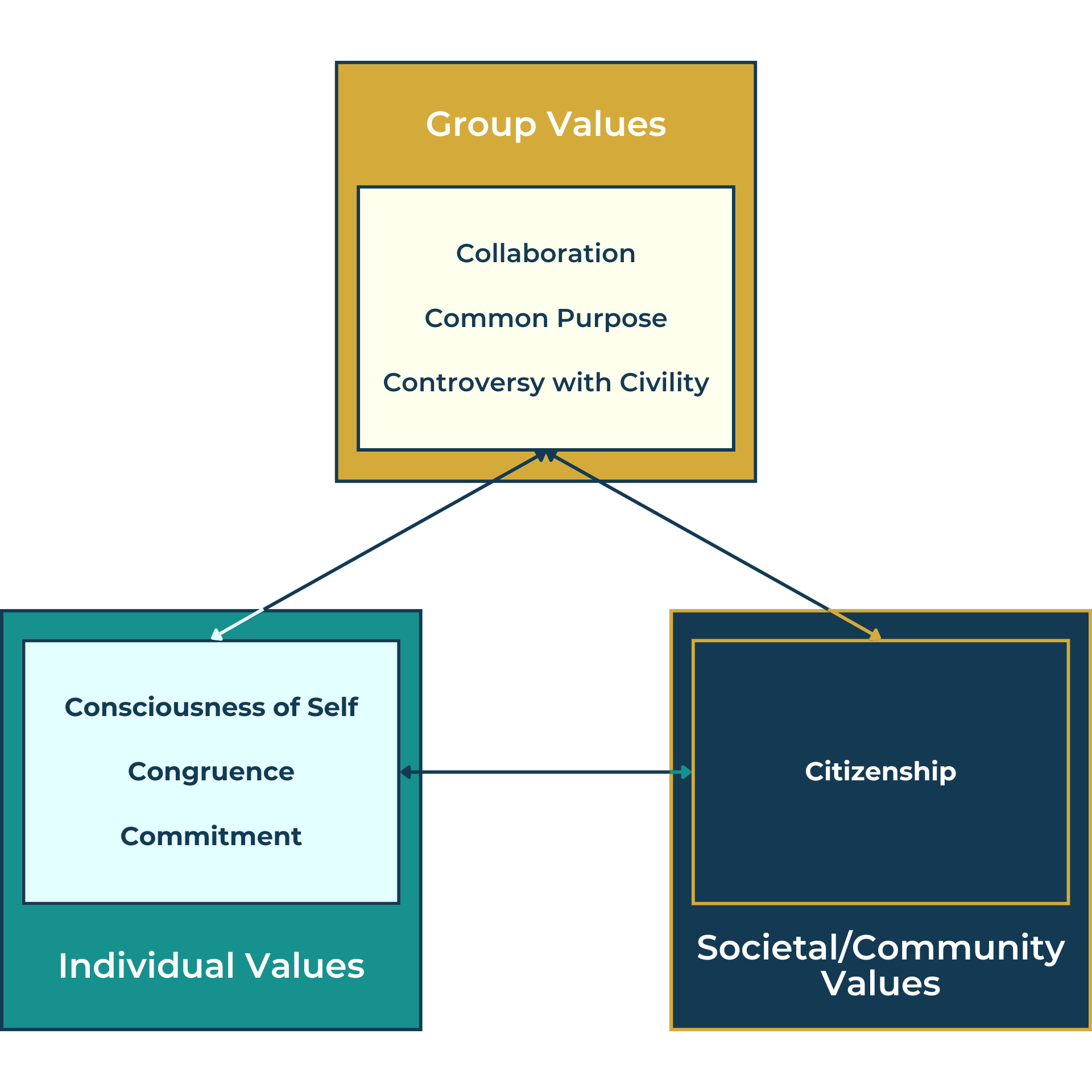

Theoretical Framework
More than the social change model.
The original theoretical framework for the MSL was the Social Change Model of Leadership Development (SCM; HERI, 1996). The SCM measures socially responsible leadership capacity defined as “a purposeful, collaborative, values-based process that results in positive social change” (Komives, Wagner, & Associates, 2009, p. xii).
As a result of nearly two decades of data collection and analyses, the MSL theoretical framework evolved to capture a broader range of capacities or “soft skills” associated with human development. The current theoretical framework draws from a much more robust set of interdisciplinary, theoretical constructs representing a broader spectrum of human development.
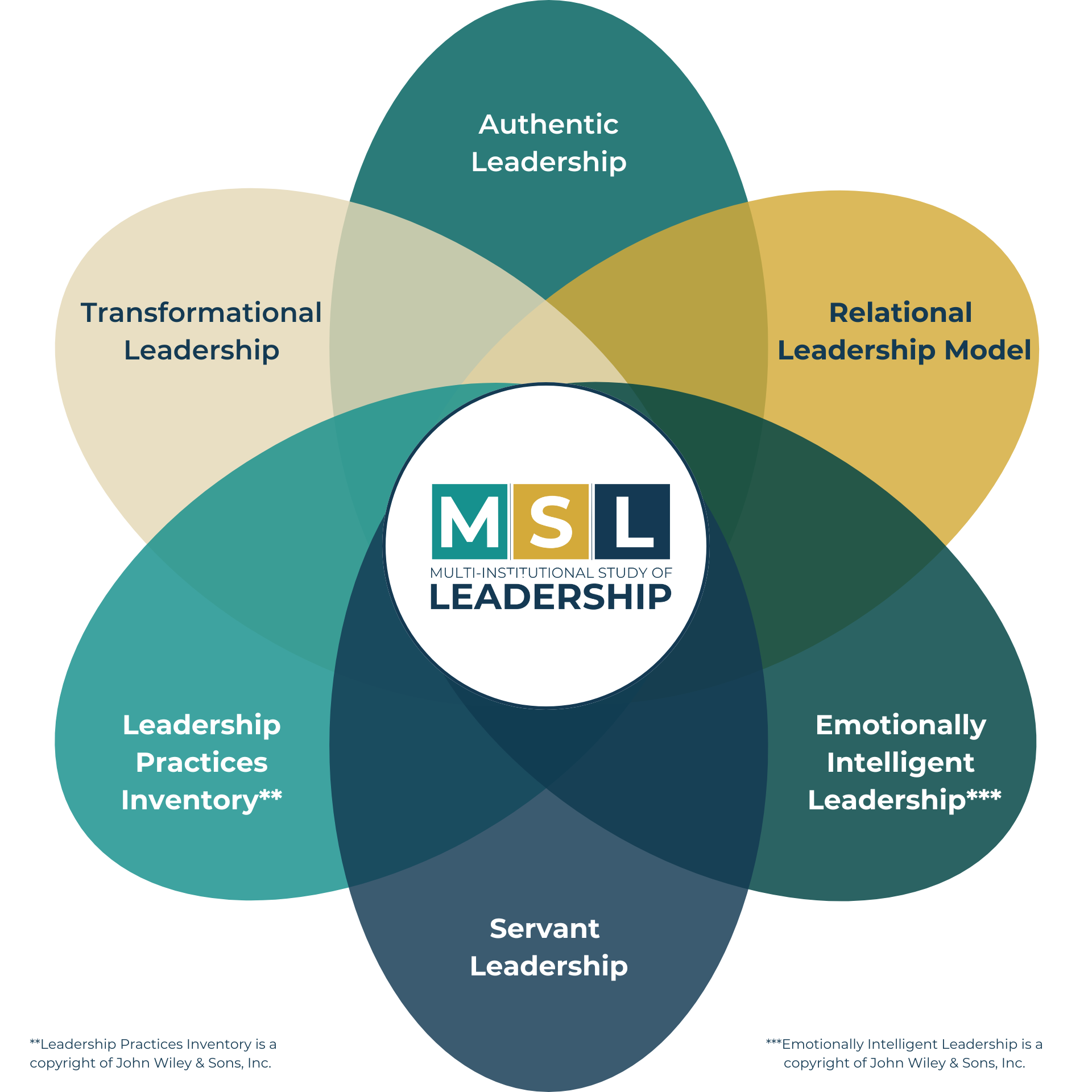
This includes:
Contemporary Leadership Theory– Research from MSL has demonstrated that post-industrial theories of leadership have much in common. Thus, the theoretical framework now draws on key dimensions from a wider range of contemporary theories.
Social Psychology & Human Development– Research from MSL points to the complexity of developmental processes. Contributing to leadership development involves much more than simple skill-building. As such, the theoretical frame relies heavily on insights from psychological and human development theories to inform the study.
Critical & Justice–Based Perspectives– The MSL design has always attempted to model the values of social justice on which the SCM is predicated. This has led to increasing attention to design elements that draw on critical and justice-based perspectives.
Beyond the Social Change Model
Where we are today.
With each cycle of the MSL research program, we evolve the survey instrument. These alterations reflect a desire to (1) continuously enhance the psychometric properties and rigor of the research, (2) ensure the survey and language evolve with changing social dynamics, and (3) integrate new opportunities for inquiry based on findings from previous cycles and needs communicated by participating schools.
The naming conventions for some scales are updated to better align with current terminology across secondary education, higher education, and workforce development contexts. These revisions are intended to promote conceptual coherence, accessibility, and cross-sector comparability as our research expands to include diverse educational settings and stakeholders. They are also aligned with The Carnegie Foundation’s Skills for the Future.
Importantly, these changes are terminological only and do not alter the underlying latent constructs, theoretical foundations, or definitional parameters of the measures. Each outcome continues to represent the same validated construct measured in prior iterations of the instrument.
Note that the outcomes reflected below only include capacities (defined as an individual or group’s knowledge, skills, behaviors, and attitudes associated with a key human development concept). Many of the environmental variables included in MSL (e.g., rates of service participation, campus climate, sense of belonging, socio-cultural conversations) can also be used as outcomes in their own right.
Adaptability
Also known as: Change
One’s comfort, readiness, and agency for enacting change processes.
Agency
Ability to initiate and sustain goal-directed efforts.
Civic Engagement
Also known as: Citizenship
Desire and ability to work effectively with others in group processes.
Creative Problem Solving
Ability to engage in meaning-making processes to foster possibility thinking as well as “seek out” and transform information into novel and useful ideas.
Cultural Competence
The awareness/knowledge of, openness to, and ability to engage with people of cultures different than one’s own.
Curiosity
Pursuit of knowledge or experiences through novel, complex, differing, or uncertain stimuli to resolve gaps, understand, and learn.
Emotional Self-Awareness
Also known as: Complex Cognitive Skills
One’s internal belief in their ability to successfully learn and develop more advanced cognitive abilities (e.g., critical thinking, self-directed learning, associational thinking).
Emotional Self-Regulation
The ability to use emotions to inform one’s impressions of an experience while intentionally choosing actions to pursue healthy and effective ways forward.
Experimentation
Formerly known as: Divergent Testing or Iterative Testing
Ability to suspend judgment by hypothesis testing through active experimentation to generate unique insights.
Generativity
Also known as: Social Generativity, Civic Drive, or Civic Impact
Concern for future generations as well as engagement in current actions to advance the future of a community.
Integrative Thinking
Ability to engage in non-linear thinking to make connections across traditional boundaries and seemingly unrelated phenomena.
Integrity
Also known as: Congruence
Alignment between convictions (i.e., beliefs, values, attitudes) and actions.
Leadership Aspirations
Awareness and use of the hopes, dreams, and goals that one has for themself in various areas of their lives, often driven by their values and desires.
Leadership Efficacy
Also known as: Group Leadership
One’s internal beliefs about their likelihood of success when engaging in leadership processes.
Leadership Motivations
Also known as: Commitment to Team
Drive to engage in leadership grounded in one’s personal commitment to a group or community’s desired outcome.
Learning Efficacy
Also known as: Complex Cognitive Skills
One’s internal belief in their ability to successfully learn and develop more advanced cognitive abilities (e.g., critical thinking, self-directed learning, associational thinking).
Navigating Systems
Also known as: Navigating Pathways
Ability to envision multiple pathways in navigating systems to achieve goals.
Perceptiveness
Also known as: Observational Awareness or Innovation Seeking
The ability to perceive beyond the expected, using all senses to heighten awareness in a given moment or context.
Personal Responsibility
Also known as: Commitment
Commitment to directing one’s energy and actions toward agreed-upon efforts.
Question Formulation
Ability to generate a variety of high-quality questions as well as strategically deploy questions to build relationships and acquire information.
Resilience
Ability to persist in the midst of adversity and positively cope with stress.
Search for Purpose
Also known as: Spirituality
Meaning-making grounded in the exploration of life’s deeper purpose.
Self-Awareness
Also known as: Consciousness of Self
Understanding of and ability to express one’s sense of self, values, and priorities.
Social Capital Creation
Ability to develop and maintain diverse relationships across traditional boundaries for the purpose of mutual benefit in personal, community, and professional domains.
Social Perspective-Taking
Ability to take another person’s point of view and accurately infer their thoughts and feelings.
Socially Responsible Leadership
One’s overall capacity to engage in socially responsible leadership as defined by the Social Change Model of Leadership Development.
Collaboration
Desire and ability to work effectively with others in group processes.
Open-Mindedness
Also known as: Civility
Receptivity to and appreciation of differing viewpoints and the advantages of engaging with them in productive ways.
Cultivating Belonging
Ability to cultivate spaces where individuals of diverse backgrounds can feel a sense of affiliation, connection, and value.
Mentoring
Ability to engage in relationships with a focus on purposefully building the talent and capacities of others.
Role Modeling
Awareness and ability to leverage one’s intentional and unintentional behaviors to shape group dynamics.
Ready to Enroll in the MSL?
Want to use an MSL scale or data set for your study?
Information and Inquiries
For inquiries about the MSL, please email us at msl@expandingleadership.org and a research team member will respond within two business days.
Sign up here to receive more information about the MSL.
